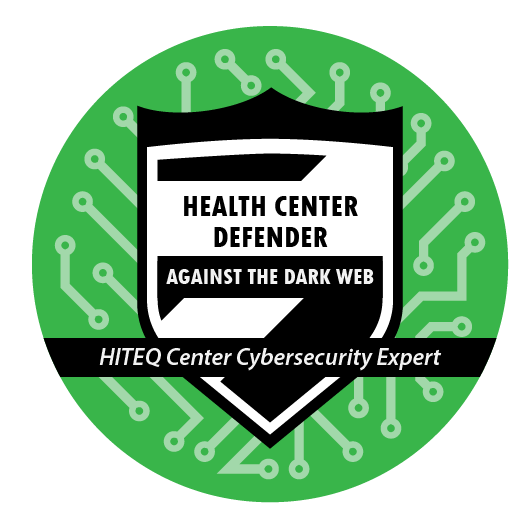
Health Centers are being inundated by an unprecedented surge in cybersecurity incidents that are having detrimental effects on healthcare worldwide. New, sophisticated threats seem to appear on a daily basis. Most importantly, these threats are primarily being targeted and spread through end users (vs health IT systems) through social engineering and phishing attack methods.
Healthcare cybersecurity is the ultimate team sport. The responsibility goes beyond the IT staff and includes front and back office staff, doctors and nurses, patients, executives, and the board of directors. These resources are directed at all levels of the healthcare organization so that they may be proactive and aware and help to defend Health Centers against the Dark Web.
Take some time to read through some of the articles on this page and then fill out the submission form on the right and you will be rewarded with a Health Center Defender Against the Dark Web badge! This is an official badge that is submitted by the HITEQ Center as a proof of completion to the blockchain. Your credentials can be added to profiles such as LinkedIn and verified through accreditation services such as Accredible and Open Badge.